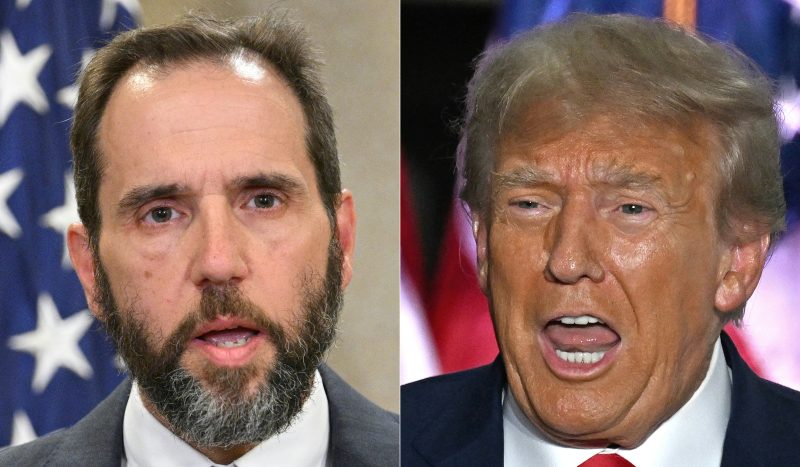In a recent turn of events following the January 6th Capitol riot, former President Donald Trump has made headlines once again by likening the Department of Justice’s (DOJ) recent court filing to a pre-election special counsel report. This comparison draws attention to the ongoing legal battles and investigations surrounding the events of January 6th and the potential implications for Trump and his associates.
The DOJ’s court filing, which was submitted in response to a lawsuit seeking to hold Trump accountable for his role in inciting the Capitol riot, has been a point of contention for Trump and his legal team. The filing argued that Trump’s actions leading up to and on January 6th were part of a concerted effort to overturn the results of the 2020 election and retain power, citing his false claims of election fraud and his encouragement of supporters to march on the Capitol.
In likening this court filing to a pre-election special counsel report, Trump appears to be framing the legal proceedings as politically motivated attacks driven by a desire to undermine his presidency and his supporters. This rhetoric is consistent with Trump’s long-standing claims of a witch hunt and systematic bias against him within the legal system. By drawing parallels to a special counsel report, Trump may be attempting to cast doubt on the credibility and impartiality of the DOJ’s investigation into his actions surrounding the Capitol riot.
However, the comparison to a pre-election special counsel report is not without its flaws. While special counsel reports are typically independent investigations that carry significant weight and authority, the DOJ’s court filing is a legal argument presented in the context of an ongoing lawsuit. The two are distinct in their scope, purpose, and implications, with the court filing representing one piece of a larger legal puzzle rather than a comprehensive investigative report.
Moreover, the DOJ’s court filing is grounded in specific evidence and legal arguments surrounding Trump’s conduct in relation to the Capitol riot, rather than generalized allegations of misconduct. The filing cites Trump’s public statements, actions, and omissions leading up to and on January 6th as evidence of his intent to subvert the election results and incite violence. This specificity distinguishes the current legal proceedings from the broad, wide-ranging nature of a pre-election special counsel report.
In conclusion, while Trump’s comparison of the DOJ’s court filing to a pre-election special counsel report may serve his narrative of persecution and political bias, it does not accurately reflect the nature and purpose of the ongoing legal proceedings. The DOJ’s filing represents a focused legal argument in response to a specific lawsuit, rather than a far-reaching investigative report. As the legal battle unfolds, it remains to be seen how Trump’s rhetorical strategies will shape public perception and the ultimate outcome of the case.
